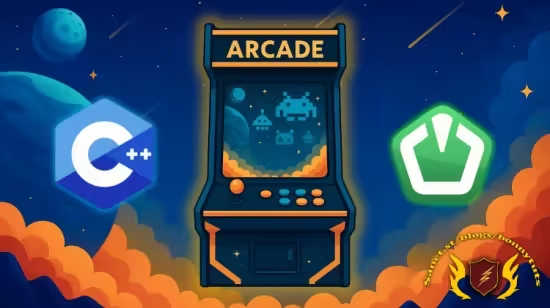
Published 11/2025
Created by Adel Hales
MP4 | Video: h264, 1280×720 | Audio: AAC, 44.1 KHz, 2 Ch
Level: Beginner | Genre: eLearning | Language: English | Duration: 104 Lectures ( 13h 21m) | Size: 4.3 GB
Learn modern C++ and SFML 3 through a complete journey in 2D game engine development
What you’ll learn
Create complete 2D arcade games from scratch in C++20 with SFML 3
Build your own 2D game engine step by step using a clean architecture
Master modern C++ features by applying them to real game projects
Learn to handle graphics, input, audio, physics, and gameplay systems
Requirements
Any computer running Windows, macOS, or Linux
Description
Welcome!In this course, you’ll learn how to create your own 2D games in C++20 with SFML 3 — through a complete, step-by-step journey that makes game development both accessible and exciting.You don’t need to be an expert to get started. Together, we’ll start simple and gradually move on to more advanced concepts, always by building real projects and seeing the results on screen.The course is divided into five main sections. We begin with Modern C++, where you’ll learn the essential features of the language in a practical, game-oriented way. Then we move on to SFML 3, the library that handles all the visuals, input, and audio. After that, we’ll build our first game, Bounce, before creating our own 2D engine — the reusable foundation that powers all future projects. Finally, we’ll reach the Games section, where we’ll build new games every week, each one introducing new gameplay mechanics.Everything is explained clearly and demonstrated in real time. You’ll understand not only how things work, but also why. Each project is short, focused, and rewarding — designed to improve both your C++ skills and your confidence as a game developer.By the end of the course, you’ll have the knowledge, the tools, and the experience to keep creating your own games from scratch — and have a lot of fun doing it.
Password/解压密码www.tbtos.com
转载请注明:0daytown » Build 2D Games with Your Own Engine in C++20 Using SFML 3